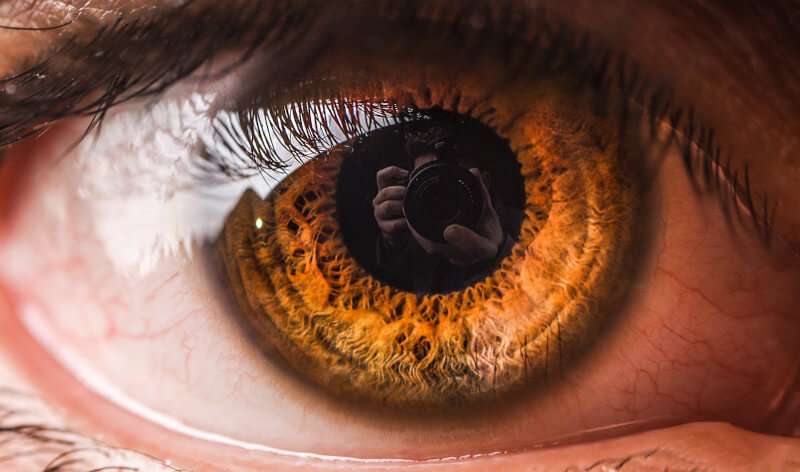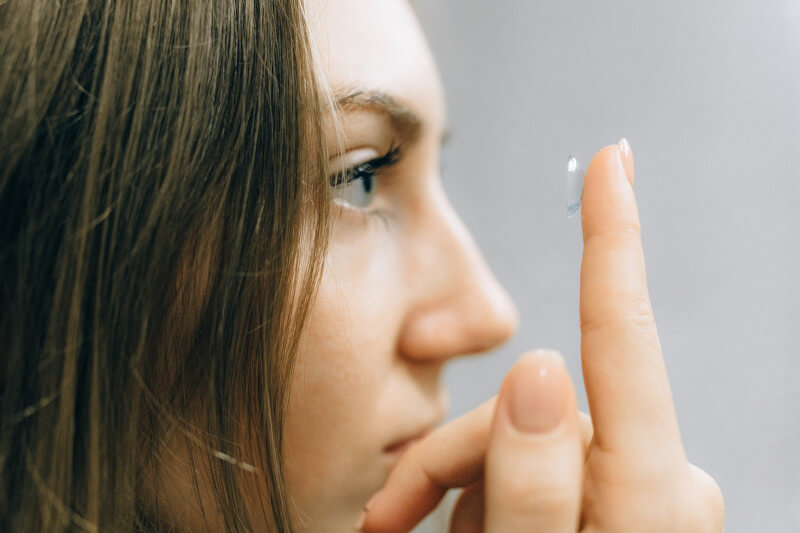We figured it might be entertaining to take a look at some of the common misconceptions regarding the eyes and how they should be cared for. Think of this as your go-to resource for debunking many of the proverbs and anecdotes you may have picked up over the past year that are not founded on facts that have been demonstrated by scientific research.
Here Are Nine Interesting Urban Legends About Eyes and Vision That Have Been Debunked
Trying to Read in the Dark is Harmful to Your Eyes and Can Even Cause You to Become Blind

Reading in conditions with inadequate lighting or darkness will undoubtedly lead to eye strain. Nevertheless, there won’t be any long-term consequences to your eyesight as a result of this. Eye strain is the same as any other type of muscle strain; it causes momentary discomfort because it is the outcome of a muscle becoming overworked and remaining in the “tense” or “flexed” position for an excessive amount of time. When the muscle is allowed to relax, the symptoms begin to lessen and eventually go away.
In light of this, it is important to protect one’s eyes from strain. Reading print or gazing at screens (phones, gadgets, TVs, etc.) in a room that is dim or poorly lit can cause uncomfortable or painful side effects such as dizziness, eye irritation, or momentarily blurred vision. These effects can be avoided by ensuring that the room has adequate lighting.
Your Eyes Can Suffer Damage if You Watch Too Much Television or if You Sit Too Near the Screen

Again, excessive time spent in front of a screen poses other risks, including eye strain (especially for young children), but it does not cause damage to one’s vision.
In spite of this, the rise in the number of hours spent sitting in front of digital screens is resulting in an increase in the number of patients diagnosed with dry eye. When we look at screens for extended periods of time, our eyes become less moist because we blink less frequently than they should. Dry eye syndrome is a condition that develops from persistent dryness and needs to be treated as soon as possible to prevent more serious complications in the future.
One of Those Time-honored Urban Legends Asserts That if You Crisscross Your Eyes

A good number of our employees can recall being told by their parents or grandparents, “If you keep crossing your eyes (or attempting to make that facial expression), it will stay that way.” They were completely wrong.
In common parlance, “cross-eyed” refers to a condition that is genuinely an anatomical anomaly that is present in a person from birth. In the field of optometry, a person who has crossed eyes is said to have strabismus.
The condition can be easily remedied by wearing the appropriate lenses and performing eye exercises that prompt sluggish nerve and muscle connections to become more active. Children who have crossed eyes should have their condition corrected before they start school and their eyes reach maturity. If you delay the treatment of a baby or small child who has crossed eyes, the condition will most likely be irreversible.
Eating Carrots Increases One’s Vision or Prevents Blindness Entirely

Even though this one isn’t true, the story that the wife’s tale is based on is pretty interesting. The British Air Ministry made use of radar in the course of World War II. However, they were adamant about keeping the Germans in the dark about their relatively recent development. Therefore, to demonstrate why the British air force was so proficient at hitting their targets – even during the night – they began to propagate the rumor that the reason the British had such excellent vision was that they ate oodles and oodles of carrots.
Carrots, on the other hand, do have a high concentration of vitamins that are beneficial to the eyes and vision, including retinol, and this case (a type of vitamin a). Therefore, while eating carrots will not prevent you from losing your vision, eating a diet rich in fresh veggies and putting an emphasis on leading a healthy lifestyle are essential for reducing the danger of both clinical and eye-related conditions that can lead to vision loss.
Eye Exercises Can Help You Avoid the Need for Corrective Lenses
We’re sorry to say that this is not accurate. Eye exercises engage the muscles that are responsible for controlling eye movement; however, they do not affect the anatomical processes that are responsible for focusing light, and neither do they impact the shape or length of the eye. These three factors are what is responsible for your refractive error, which is why you need glasses.
However, eye exercises can help rectify certain imbalances (such as crossed or lazy eyes), and eye strain can be relieved by performing eye exercises whenever you take a break from reading or using a screen for an extended period of time.
If You Have a Corneal Transplant, Your Vision Will Be Identical to That of the Donor

We replace diseased or damaged corneas in the eyes of living patients with healthy corneas taken from donors who have passed away. This procedure is known as a corneal transplant. The function of the cornea is to concentrate the light that is let into the eye. That sums it up nicely. The images are not engraved into the cornea, nor does it “remember” them. The organs that are responsible for memories are the connections that are made between the optic nerve and the brain.
It would be a terrible thing if this myth were to cause somebody to avoid getting a corneal transplant if they needed one. The difference between the two can be the ability to see as opposed to becoming significantly or entirely blind.
Putting on the Eyeglasses of Another Person Can Cause Your Vision to Change or Get Worse
If you borrow someone else’s glasses, you run the risk of becoming lightheaded, disoriented, or developing a severe headache as a result of the strain placed on your eyes. This is not a great idea. There is a good chance that your vision will not be very good, and as a consequence, you will experience a momentary case of visual fatigue.
If their spectacles help you see more clearly, this is a clear indication that you are overdue for a comprehensive eye exam; therefore, you should make an appointment with your optometrist as soon as possible.
Iris Examination Can Be Used to Provide a Diagnosis of a Person’s Health Conditions
The colored portion of the eye, known as the iris, can be seen in humans. When we refer to a person as having blue, brown, or green eyes, we are referring to the color of the iris in their eye. It has been believed for a very long time that trained diagnosticians are capable of recognizing specific medical conditions due to the various patterns, color splodges, and other character traits that can be found on a person’s iris. This is a myth that has been perpetuated for a very long time.
There is currently no supporting evidence from the scientific community for this theory. However, due to the interconnected nature of the body, there are times when an eye specialist may get the feeling that there is something else wrong with their patient.
For instance, jaundice can be caused by liver damage, which can make the whites of the eyes appear more yellow. When something in the patient’s eyes does indicate that there may be a fundamental medical problem, we refer the patient to their primary care physician for a checkup and transfer what we found to ensure that the patient is receiving the necessary medical care.
Contact Lenses Can Get Lost in Your Eyes

Because of the anatomy of the eye and the way that the membranes intersect and connect, contact lenses will not slide around your eyeballs. However, if proper care, removal, and attention are not given, contact lenses have the potential to become lodged beneath the lids, which can lead to an infectious disease or more serious harm to the surface of the eyes. Always ensure that you clean and maintain your contact lenses in accordance with the procedures that your optometrist has instructed you to follow. If at all possible, you should steer clear of sleeping in them.
See an eye specialist who can keep you on the straight and narrow and Avoid believing the urban legends that have been passed down about your eyes.




